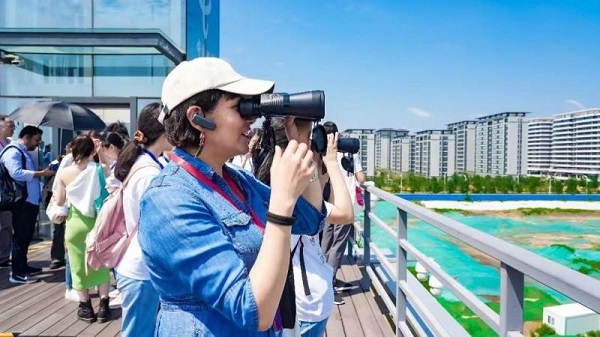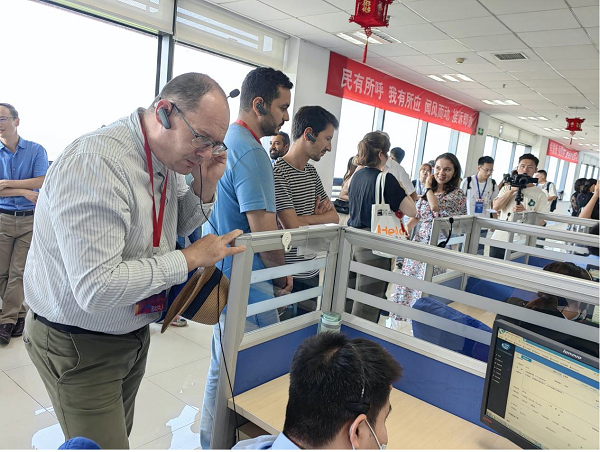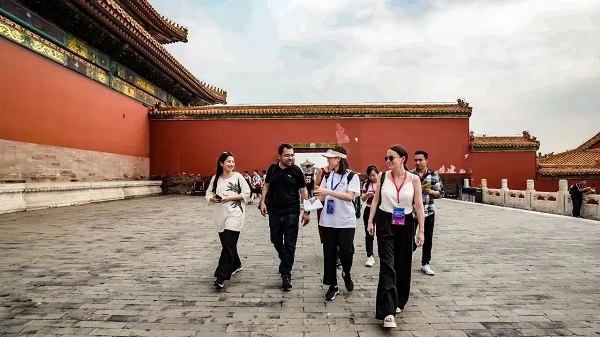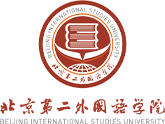
The inaugural Summer Program on "An Overview of Modern China and City Development" (2023), co-hosted by Beijing International Studies University and the Foreign Affairs Office of the People's Government of Beijing Municipality, wrapped up its two-week session on August 18. Over 50 international participants from 28 countries immersed themselves in a unique educational journey that involved both coursework and hands-on experiences.

International participants conduct field research.
The summer course featured an array of lectures with themes centered on the Chinese path to modernization and urban development. Topics ranged from "Chinese outbound tourism consumption trends and behavior" to "China's urbanization process and real estate industry." Through panel discussions and post-lecture interactions, the participants deepened their understanding of China's development model.
Tomas Barteczek from the Czech Republic found the lectures fascinating, covering various aspects like finance, culture, politics, and taxation. "The experts are very welcoming and are keen to answer our questions," he said.
Alongside classroom lessons, students were engaged in field research at multiple locations, including Beijing's sub-center, Beijing City Planning Exhibition Hall, and the Xiongan New Area. The course also included cultural explorations of the Forbidden City, the Great Wall, and other heritage sites.
Pimpicha Kerdmenee, an official worked at the Bangkok City Government, was inspired by China's urban planning. She emphasized that a city's development should cater to the needs of all its citizens, something she observed being done effectively in China.
An additional dimension to the course involved real-world engagement with modern technologies and governance methods. Students visited the press briefing room at the Ministry of Foreign Affairs, and took a tour of the service center of Beijing citizens' hotline 12345.

International participants visit the service center of Beijing citizens' hotline 12345.
Morosan Adrian Gabriel from Romania noted, "The government's focus on the needs of the people and societal services is important for urban and human development. I felt China's openness and inclusivity."
Students also had the chance to experience the grandeur of China's cultural heritage and learn about its history. "The program, comprising students from diverse backgrounds, has provided an excellent platform for cultural exchange," said Gabriel.
Kovacs Laszlo Erik from the University of Debrecen in Hungary is planning to introduce a course on "Chinese Culture" upon his return, incorporating the diverse themes discussed during the summer course. "This experience was beyond imagination; it was awe-inspiring every day," he said.

International participants conduct in-depth cultural exploration at the Forbidden City.
The course has provided international youth with a comprehensive, multi-dimensional view of China, shedding light on its modernization, governance, and vibrant cultural legacy. The initiative marks another step in fostering mutual understanding and knowledge exchange among the global youth community.

Links
